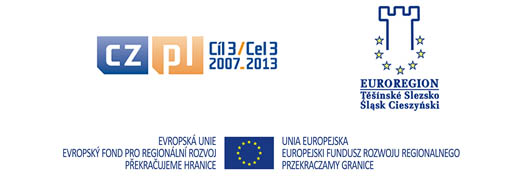14. Bolesław I (Boleslaus I) * after 1363 + 6 May 1431
He was the son of Prince Przemysław I Noszak and Elżbieta, the daughter of Bolesław of Bytom and Koźle. Sometime between 1405 to 1407 he married Małgorzata (* 1388/1392 + c. 1407), the daughter of Jan I, Prince of Racibórz and Anna of Żagań. It is difficult to ascertain whether the marriage was contracted before or after the tragic murder of Prince Przemysław, which crime had been instigated by Małgorzata's brother, Prince Jan II of Opava and Racibórz. If the latter were true the marriage could have been an attempt to improve the relations between the Cieszyn Piasts and the Racibórz Přemyslids.
After the premature death of Małgorzata, Prince Bolesław was married again in 1412, i.e. after the death of his father, Przemysław Noszak, this time to Ofka, also called Eufemia (* 1395 + 18 September 1447), the daughter of Siemowit IV of Mazovia and Władysław Jagiełło's sister, Aleksandra Olgierdówna. The wedding took place on 26 November 1412. The marriage was probably devised by Władysław Jagiełło, who saw it as an opportunity to strengthen links between the Upper Silesia Princes and Cracow. Undoubtedly, considering the princess' remarkable beauty, the Prince of Cieszyn did not hesitate to marry her. The degree of consanguinity required papal permission.
Bolesław and Ofka had four sons; Wacław, Prince of Cieszyn and the Lord of Bielsko; Władysław, Prince of Cieszyn and the Lord of Wielki Głogów; Przemysław II, Prince of Cieszyn; Bolesław II, Prince of Cieszyn and one daughter; Aleksandra, the wife of the Hungarian Palatine, Władysław Garai.
In 1404 Prince Bolesław assumed power in Toszek, and after his brother Przemysław's death in 1406 took over the Duchy of Oświęcim. After his father's death in 1410 he also assumed the princely throne of the Duchy of Cieszyn. On 19 December 1414 he assigned half of the Duchy of Oświęcim and Siewierz to his nephew, Kazimierz. On 11 November 1416 he finally decided to divide up the linked duchies. He kept the Duchy of Cieszyn, Bytom and the half of Głogów owned by the Cieszyn Piasts. The Duchies of Siewierz, Oświęcim and Toszek were given to Władysław. The Prince of Lubin, Henryk X, was given the role of mediator.
Following the example of his father Prince Bolesław took an active part in international politics. In 1414 he took part in the war between Poland and the Teutonic Knights (the so-called War of Starvation) on the side of Władysław Jagiełło. However, he was not present at the Wrocław congress, where the King of Bohemia, Sigismund, acting as arbitrator in the dispute between Poland and the Teutonic Knights, passed a verdict to Poland's disadvantage. He remained aloof from King Sigismund's politics, clearly favouring the Bohemian national camp, although he never joined the Hussites. For instance he did not support Sigismund in the fight for the Bohemian throne and let Zygmunt Korybutowicz's retinue cross the Duchy of Cieszyn on its way to Bohemia. Although he entered an alliance against Poland established by Sigismund of Luxembourg, it did not stop him from maintaining good relations with Poland. For example, in 1423 he was in Cracow at Władysław Jagiełło's court, and the following year he took part in the coronation ceremony of Queen Sońka.
Locally, Prince Bolesław's politics supported the growth of the towns in the Duchy of Cieszyn. For instance in 1412 he bestowed the right of succession on the townspeople of Bytom and in 1423 numerous privileges on the town of Frydek. In 1424 the town of Bielsko was given the Right of One Mile (protecting the commercial and professional rights of the townspeople of Bielsko). These concessions in favour of the townspeople of the Duchy of Cieszyn were no doubt also caused by chronic shortages in the prince's treasury. He was also active in financial transactions. For example, in 1422 he lent 8,000 Prague marks to the King of Bohemia, John of Luxembourg, and Bolesław himself a few years earlier, in 1418, borrowed 1,000 marks from Władysław Jagiełło.
After Bolesław's death the Duchy of Cieszyn was ruled for some years by Princess Ofka and her sons. She continued her husband's politics of promoting the growth of towns. In 1438 she was involved in the resolution to sell the right of mintage to Cieszyn. During her regency the princely dominion was again reduced, because in 1438 Frydek and the surrounding villages was sold to Ernest of Tworków near Racibórz. It created the base of the soon to be set up Frydek State. She also agreed to sell the Duchies of Oświęcim and Siewierz to the Bishop of Cracow, Zbigniew Oleśnicki. She was probably buried by her husband's side in the Dominican church in Cieszyn.
(Listinař Těąínska, no 117 ff., K. Jasiński, Rodowód, vol. 3, pp. 152-156, S. A. Sroka, Polacy na Węgrzech, pp. 15, 23-24, 152, I. Panic, Księstwo cieszyńskie, pp. 54-55)










